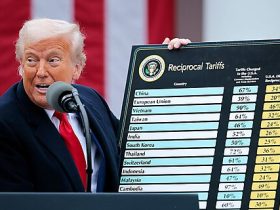Jeffrey Miron
In a recent Washington Post op-ed, tax policy expert Scott Hodge reminds us that many universities engage in numerous activities that are tax-exempt but have only an indirect or modest connection to education:
According to the latest Internal Revenue Service tax data … the top 100 private colleges generated $207 billion of revenue in 2023. Roughly 80 percent of that income came from business-type sources such as ticket sales, research contracts, stadium deals, broadcast rights, investments, royalties, rents and, yes, tuition — which is generally considered payment for services rendered. But the tax code considers nearly all this revenue related to educating students and exempt from UBIT [unrelated business income tax].
One possible response is that universities, and other non-profits, should pay the corporate income tax. That has the advantage of treating economic entities doing similar things similarly, regardless of their official tax status.
But this approach is messy. If a university-owned hotel mainly hosts university visitors – prospective students, guest lecturers for seminars – is that education-related? One can imagine endless litigation dealing with such gray areas.
A more effective response would be to eliminate the taxation of corporate income, as I have previously argued. One of the reasons has particular relevance now:
[T] axing corporate income leads governments to distinguish between for-profit (taxable) and non-profit (non-taxable) entities. This allows politicization of such designations and forces governments to make inherently controversial decisions about which activities and organizations are charitable, educational, religious, and so on.
Abolishing the corporate income tax eliminates one tool that governments can use to impose particular views on education and other non-profits.
This post was cross-posted from Substack. Siddharth Pakalapati and Rishan Jaheer, students at South Forsyth High School, co-wrote it.






